“Sowing Seeds,” in the January-February 2014 Harvard Magazine, reports on an alumni-founded social enterprise, Proximity Designs, working in Myanmar to boost farmers' incomes with affordable rural technologies. The article also describes the collaboration between Proximity Designs and economic and policy analysts at Harvard who study the country's shattered economy, its prospects for growth, and broad changes needed in governance and civic life to bring about better lives for Myamnar’s largely impoverished people. These images supplement the photographs accompanying the article; they show Proximity Designs' products and services as they are manufactured, distributed, and used in Myanmar today.
Proximity Designs and rural development in Myanmar
Proximity Designs and rural development in Myanmar
A social enterprise works to improve farmers' economic prospects

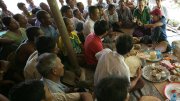


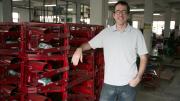
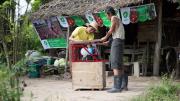


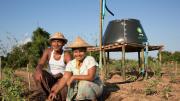
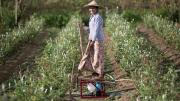
You might also like
Former Homeland Security Chief Says ICE and CBP Have “Lost Their Way”
At Kennedy School talk, Jeh Johnson advocates restructuring “outdated” DHS.
Open Book: A New Nuclear Age
Harvard historian Serhii Plokhy’s latest book looks at the rising danger of a new arms race.
Harvard Symposium Tackles 400 Years of Homelessness in America
Professors explore the history of homelessness in the U.S., from colonial poor laws to today’s housing crisis
Most popular
Explore More From Current Issue

How a Harvard Hockey Legend Became a Needlepoint Artist
Joe Bertagna’s retirement project recreates figures from Boston sports history.

A New Landscape Emerges in Allston
The innovative greenery at Harvard’s Science and Engineering Complex






